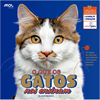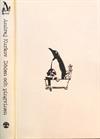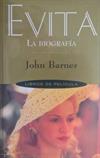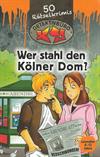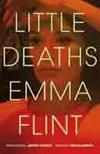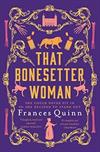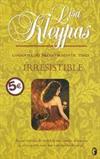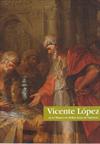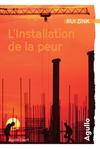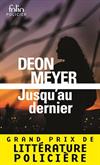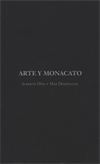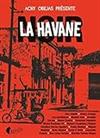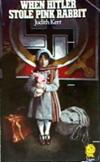
When Hitler Stole Pink Rabbit
4 journalers for this copy...
When Hitler Stole Pink Rabbit is a children's novel, by Judith Kerr, first published in 1971. It is a semi-autobiographical story of a young Jewish girl who is forced to flee her home in Germany in 1933 with her family to escape the Nazis, who her father, a writer, had campaigned against. The family escaped through Switzerland, spent some time in Paris, before finally arriving in England in 1936.
It is based upon the early life of the author whose Jewish father, noted drama critic, journalist and screenwriter Alfred Kerr, was wanted by the Nazis. Kerr's family also fled their home in Berlin via Switzerland to escape to Paris and then England. She came to write the book when her own son was eight and after seeing The Sound of Music remarked, "now we know what it was like when Mummy was a little girl". Kerr wanted him to know what it was really like and so wrote When Hitler Stole Pink Rabbit. The book gives a distinctive child's perspective on the rise of Nazism in 1930s Germany and the experience of being a refugee, reflecting Kerr's positive feelings about her own experience:
“My parents were wonderful. My brother Michael and I knew there wasn’t much money but it didn’t seem to matter much. They made us feel it was an adventure. I much preferred it to the sort of childhood I would have had had we had a so-called normal childhood. When we were in Paris we had this grotty, tiny flat and were looking out over Paris and I said to my father, 'Isn’t it wonderful being a refugee!'”
The book won the 1974 Deutscher Jugendliteraturpreis. It is often used in German and British schools as an introduction to the period in history and the experience of being a refugee. The book has been used as part of the Judith Kerr collection at the Seven Stories Centre for Children’s Books, in Newcastle. It is an American Library Association Notable Book, a School Library Journal Best Book of the Year and a Horn Book Fanfare Title.
(Wikipedia)
It is based upon the early life of the author whose Jewish father, noted drama critic, journalist and screenwriter Alfred Kerr, was wanted by the Nazis. Kerr's family also fled their home in Berlin via Switzerland to escape to Paris and then England. She came to write the book when her own son was eight and after seeing The Sound of Music remarked, "now we know what it was like when Mummy was a little girl". Kerr wanted him to know what it was really like and so wrote When Hitler Stole Pink Rabbit. The book gives a distinctive child's perspective on the rise of Nazism in 1930s Germany and the experience of being a refugee, reflecting Kerr's positive feelings about her own experience:
“My parents were wonderful. My brother Michael and I knew there wasn’t much money but it didn’t seem to matter much. They made us feel it was an adventure. I much preferred it to the sort of childhood I would have had had we had a so-called normal childhood. When we were in Paris we had this grotty, tiny flat and were looking out over Paris and I said to my father, 'Isn’t it wonderful being a refugee!'”
The book won the 1974 Deutscher Jugendliteraturpreis. It is often used in German and British schools as an introduction to the period in history and the experience of being a refugee. The book has been used as part of the Judith Kerr collection at the Seven Stories Centre for Children’s Books, in Newcastle. It is an American Library Association Notable Book, a School Library Journal Best Book of the Year and a Horn Book Fanfare Title.
(Wikipedia)
Bookray:
The original bookray got stalled and I gave up waiting for it to be moved on because the two other parts are following. So I got this copy. I'm afraid it's a bit old, but at least the ray can continue now.
- penelopewanders (Switzerland) ship EU
- grovalskii (Germany) ship int'l
- bookguide (NL)
The sequels "Bombs on Aunt Dainty" and "A Small Person Far Away" are rays, too. PM me if you are interested! Part 2 and 3 are travelling together.
The usual:
- Someone will PM you for your address, PM them back and provide your address
- When you receive the book, please make a journal entry letting everyone know that you received it
- Please try to finish it within a month
- When the end is in sight, check the book's journal and PM the next person to get their address
- Make another journal entry and let everyone know what you thought of the book
- Make release notes to let everyone know that it's in the mail
- Send the book to the next person on the list
If delayed make sure to let us know so that the ray will not stop
(If you are very new, you must at least be active, i.e. having registered and released books.)
The original bookray got stalled and I gave up waiting for it to be moved on because the two other parts are following. So I got this copy. I'm afraid it's a bit old, but at least the ray can continue now.
- penelopewanders (Switzerland) ship EU
- grovalskii (Germany) ship int'l
- bookguide (NL)
The sequels "Bombs on Aunt Dainty" and "A Small Person Far Away" are rays, too. PM me if you are interested! Part 2 and 3 are travelling together.
The usual:
- Someone will PM you for your address, PM them back and provide your address
- When you receive the book, please make a journal entry letting everyone know that you received it
- Please try to finish it within a month
- When the end is in sight, check the book's journal and PM the next person to get their address
- Make another journal entry and let everyone know what you thought of the book
- Make release notes to let everyone know that it's in the mail
- Send the book to the next person on the list
If delayed make sure to let us know so that the ray will not stop
(If you are very new, you must at least be active, i.e. having registered and released books.)
Journal Entry 3 by  ApoloniaX
ApoloniaX at Bookring/Bookray, -- By post or by hand/ in person -- Canada on Thursday, August 5, 2010
at Bookring/Bookray, -- By post or by hand/ in person -- Canada on Thursday, August 5, 2010
 ApoloniaX
ApoloniaX at Bookring/Bookray, -- By post or by hand/ in person -- Canada on Thursday, August 5, 2010
at Bookring/Bookray, -- By post or by hand/ in person -- Canada on Thursday, August 5, 2010
Journal Entry 4 by  penelopewanders
penelopewanders at Hasliberg, Bern / Berne Switzerland on Saturday, August 14, 2010
at Hasliberg, Bern / Berne Switzerland on Saturday, August 14, 2010
 penelopewanders
penelopewanders at Hasliberg, Bern / Berne Switzerland on Saturday, August 14, 2010
at Hasliberg, Bern / Berne Switzerland on Saturday, August 14, 2010
This was waiting when I returned from holiday, along with a few other rings and rays. I'll try to read the quickest ones first. Thanks so much for sending.
Journal Entry 5 by  penelopewanders
penelopewanders at Hasliberg, Bern / Berne Switzerland on Tuesday, August 17, 2010
at Hasliberg, Bern / Berne Switzerland on Tuesday, August 17, 2010
 penelopewanders
penelopewanders at Hasliberg, Bern / Berne Switzerland on Tuesday, August 17, 2010
at Hasliberg, Bern / Berne Switzerland on Tuesday, August 17, 2010
Heard about this in the past and very glad to have read it. Interesting perspective on WWII. I'll try to send this on before travelling again at the end of the week, but would like to confirm the address which I have from a previous ring.
I'd love to read the sequels.
I'd love to read the sequels.
Journal Entry 6 by  penelopewanders
penelopewanders at Hasliberg, Bern / Berne Switzerland on Wednesday, August 18, 2010
at Hasliberg, Bern / Berne Switzerland on Wednesday, August 18, 2010
 penelopewanders
penelopewanders at Hasliberg, Bern / Berne Switzerland on Wednesday, August 18, 2010
at Hasliberg, Bern / Berne Switzerland on Wednesday, August 18, 2010
On its way to Berlin, happy travels!
just received the book in the mail. Thank you!
I read the book with my 11-year-old daughter. We enjoyed it a lot. A real life story such as this as a nice way to make history more real to my daughter. I have to admit that the language was not the easiest for a child. I cannot imagine my daughter reading this book by herself. I had to explain words to her more than I expected in a children's book.
I'll mail the book on to the next reader within the next few days.
I'll mail the book on to the next reader within the next few days.
mailed out to bookguide
Arrived safely today in my letterbox. I was trying to think why I recognise the author's name, and having googled it, I realise that she wrote and illustrated one of our family's favourite picture books, 'The Tiger Who Came to Tea'. Thank you Grovalskii for sending it on, and ApoloniaX for making it a ray.
This is one of those stories rarely told about the period preceding WWII; the everyday difficulties of a Jewish family who left Germany before Hitler came to power. Anna and Max's parents shielded them from the fear of what they suspected was going to happen, so even the fact that their famous journalist father felt that he was in danger so that the whole family had to leave, did not make them truly scared. They knew that it was important that they didn't tell anybody that their father had already gone to Switzerland, but there was no terror when they left themselves, although their mother was obviously nervous. The time in Switzerland was more or less idyllic, but the family had to move on to Paris so that Papa could earn a living.The strength of the book is not so much that it reveals much about WWII, but that it tells the feelings of a young girl who had to adjust to life in a strange country and learn a new language; it is the refugee or expat experience, rather than the Jewish experience, and it is brought down to the level at which a child experiences it. As in 'The Diary of Anne Frank', we hear about the daily irritations, the problems of a family living in reduced circumstances; the mother who had to learn how to cook and keep house, the impractical father who didn't understand, the children who were outgrowing their clothes, all against the background of the Depression. Yet the family adapted and was happy nevertheless, and only in the fact that they had to flee their country at all is a hint of what was happening to the Jews, apart from a few isolated incidents, such as the tale of the famous man in the kennel and Onkel Julius, but this is all told at one remove, remote from their own lives.
This is a very interesting book, and told in a way which would appeal to children around the time they go to senior school. It gives a good picture of the "make do and mend" way of life which their grandparents grew up in, and which now only seems to be led by people who are seriously interested in recycling. Children nowadays wouldn't believe that most children in those days would not have had many clothes, and that they would be patched and mended when necessary. Food also seems to be an obsession in Judith Kerr's books, probably due to the rationing she experienced as she was growing up. In this book, food is often described, and in 'The Tiger Who Came to Tea', a tiger visits and eats and drinks everything so that the family has to go out for dinner at a café, an occurence which would have been rare in the 1970s when both books were written. I would imagine that those of us who grew up in the '70s and '80s would find it easier to imagine than today's children who have grown up in a much more affluent society, and to whom the 1930s seem like ancient history. All the more reason, then, to give them easily accessible stories such as this one to bring the period alive.
I am hoping that my 10-year-old daughter can be persuaded to let me read it to her, as she took one look at the cover illustration (a serious-looking dark-haired girl clutching a pink rabbit, in her coat, hat and scarf, standing next to a suitcase, and in the background a large swastica), and decided it wasn't for her age-group, used as she is to bright colours and frivolous subjects. I wonder what the latest cover looks like, as I am pretty sure that other children would also be put off by such an illustration.
This is a very interesting book, and told in a way which would appeal to children around the time they go to senior school. It gives a good picture of the "make do and mend" way of life which their grandparents grew up in, and which now only seems to be led by people who are seriously interested in recycling. Children nowadays wouldn't believe that most children in those days would not have had many clothes, and that they would be patched and mended when necessary. Food also seems to be an obsession in Judith Kerr's books, probably due to the rationing she experienced as she was growing up. In this book, food is often described, and in 'The Tiger Who Came to Tea', a tiger visits and eats and drinks everything so that the family has to go out for dinner at a café, an occurence which would have been rare in the 1970s when both books were written. I would imagine that those of us who grew up in the '70s and '80s would find it easier to imagine than today's children who have grown up in a much more affluent society, and to whom the 1930s seem like ancient history. All the more reason, then, to give them easily accessible stories such as this one to bring the period alive.
I am hoping that my 10-year-old daughter can be persuaded to let me read it to her, as she took one look at the cover illustration (a serious-looking dark-haired girl clutching a pink rabbit, in her coat, hat and scarf, standing next to a suitcase, and in the background a large swastica), and decided it wasn't for her age-group, used as she is to bright colours and frivolous subjects. I wonder what the latest cover looks like, as I am pretty sure that other children would also be put off by such an illustration.

